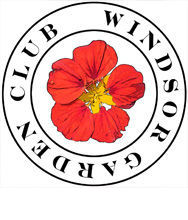Want to make your yard a haven for bees and butterflies? Two tips: don’t use pesticides containing neonicotinoids, and be careful where you buy your plants.
By now, most home gardeners have probably heard about the plight of the bees (and butterflies). Bee populations are rapidly declining, and their homes are plagued by a mysterious disease called colony collapse disorder. Bees are also falling prey to disease and parasites. Scientists estimate that there’s been a 90 percent decline in the population of pollinators in America in the past 20 years, including wild bees and monarch butterflies.
So if you think there seem to be less butterflies and bees floating around than when you were a kid, it’s not your imagination.
Pollinators (like bees and butterflies) transfer pollen and seeds from one flower to another, fertilizing plants so they can grow and produce food. Pollination helps at least 30 percent of the world’s crops and 90 percent of wild plants. Without bees to spread seeds, many plants — including food crops — would die off.
Scientists and researchers have pointed the finger at a big class of pesticides called neonicotinoids (nee-yo-nick-oh-teen-oids) as one of the biggest reasons for the pollinator problem.
Pesticides containing neonicotinoids are really good at killing bugs and not as toxic to humans or animals as pesticides in use in prior decades. But among the bugs they’re really good at killing are bees and butterflies. The pesticides are much more closely regulated in the European Union, which has decided they are a primary cause in the bee crisis. But they’re still in use by farmers and home gardeners in the U.S.
The neonicotinoids are systemic — meaning they are absorbed by the tissues of the entire plant, and wind up in pollen and nectar. That’s how they sicken and kill bees and butterflies and their larvae. Researchers have also found that neonicotinoids taint the soil for up to a year.
So if you’re trying to make your garden a bee and butterfly haven, and you’ve stopped using neonicotinoids, it may take up to a year before your garden is actually free of them.
The State of California has a good online list of the commercial names of pesticides (and some fertilizers) containing neonicotinoids. You can find it here: http://www.cdpr.ca.gov/docs/registration/reevaluation/chemicals/niclistofproducts.pdf.
What can you use instead of those pesticides? If you’re trying to get rid of aphids (a common Sonoma County pest, especially on roses) try vigilantly blasting your buds with a hose every morning, or spraying them with soapy water, or buying organic sprays like the Safer brand.
And be sure you’re buying plants that have only been treated with safe pesticides — no neonicks. How do you figure that out? Ask the store where you’re buying them. Look on the labels. Shop for plants labeled “bee and butterfly safe.” Or try growing your own from bee and butterfly safe seeds.
The Windsor Garden Club is one of those growers. The nonprofit club runs the Windsor Town Green Community Garden at Windsor Road and Joe Rodota Way, a no-pesticides zone that’s a healthy bee and butterfly habitat. The garden holds two plant sales each year. One of them is coming up April 22 at the Town of Windsor Earth Day and Wellness Festival on the Town Green. The “Birds and Bees” Spring Plant Sale will offer organic bee-friendly plants, including tomatoes and veggies, colorful container gardens and more.
On May 5 in the Town Green Community Garden, the club will hold a “Some Like it Hot” plant sale featuring plants that need a little more warm weather before they’re ready to go in the ground: sauce tomatoes, cucumbers, peppers, basil, eggplant, melons, sunflowers zinnias and milkweed — the plant desperately needed by Monarch butterflies.
You can also find a readable summary of some of the latest research on neonicotinoids and bees on the Xerxes Society website here: http://xerces.org/neonic-report-exec-summary/
For more details on the plant sales or other Windsor Garden Club activities, visit the club website at www.windsorgardenclub.org.
Teresa Mariani Hendrix is a member of the Windsor Garden Club








